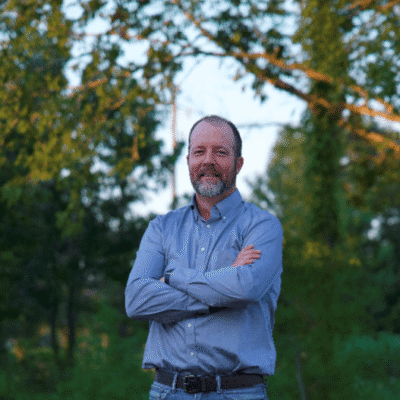 In 2006 I was diagnosed with Epilepsy. At the time I was confused; we all were. I have written quite a bit about my general experience but basically, I grew to adapt to my seizures and new lifestyle and I just got on with my life. I was nearly 11 and I got used to not being able to do what my friends could do, I got used to medications and it was all OK. It was as I got older that things got harder, my seizures got worse, and I was very isolated. This was when I decided I wanted to give back others and become a voice for Epilepsy. I wanted to show that it is OK to accept help and there are ways to live well with conditions.
In 2006 I was diagnosed with Epilepsy. At the time I was confused; we all were. I have written quite a bit about my general experience but basically, I grew to adapt to my seizures and new lifestyle and I just got on with my life. I was nearly 11 and I got used to not being able to do what my friends could do, I got used to medications and it was all OK. It was as I got older that things got harder, my seizures got worse, and I was very isolated. This was when I decided I wanted to give back others and become a voice for Epilepsy. I wanted to show that it is OK to accept help and there are ways to live well with conditions.
It takes a lot of energy to make someone else feel bad, and in the end, you only feel good for a little while. When you make someone else feel happy, not only are you happy too, but that feeling lasts much longer.
I have had numerous amounts of people come to me to ask how they can make a difference in their community, as well as people coming forward to tell me how I help them. I will never forget what a lady told me once; “People may forget what you said or what you did, but they will never forget how you made them feel.” Everyone needs help at some point in his or her life. Everyone also has the ability to give back in someway or another.
Why help?
There are so many individuals, families and organisations out there that need your help, and it is possible for one person to make a big difference. For a year or so I was in a very dark place due to feeling so isolated and helpless, but I soon realised, after setting up a blog, that I felt much better after helping just one person. Doing good makes you feel good. Giving also connects us to others, creating stronger communities and helping to build a happier society for everyone. And it’s not all about money – we can also give our time, ideas and energy. Doing things for others – no matter how small, whether it is a random act of kindness, regular volunteering, fundraising – it is all a powerful way to boost our own happiness as well of those around us.
What can you do to help?
The first simple thing I can say is ‘Smile and be friendly’. I know this can be hard to do if you feel sad yourself, but a simple little thing like this can put a smile and warm feeling in someone else’s heart, and make their day a little better. They might then do the same for others!
The second piece of advice I have is for you to ‘Call a charity to volunteer’. You may not have a local charity that you feel confident in volunteering for (I am confident in Epilepsy and associated conditions but found it hard to find a charity in my town), but you don’t have to live locally to them. You also don’t have to go to meet ups every day. Do a bit of research, get their number or email address and make the first step. It can be whatever charity you like. Volunteering is one of the most amazing things you can do. I work for Young Epilepsy and have also worked closely with Epilepsy Action, both of which are pretty far away from my town!
Make a donation. There are lots of ways to donate to charities online, or in your local community. Instead of buying yourself a new outfit or a pair of shoes, spend that money in a more positive way. I have made cakes, cards, sold my artwork and taken part in events and ran campaigns to raise money and to make donations to my chosen charity.
One of my biggest tips in relation to Epilepsy is to Teach. Take the time to teach someone a skill or some information you know. This could be teaching your friends about Epilepsy and seizures, teaching your colleagues Epilepsy first aid, or what different seizures can look like.
Help someone take action. If someone you know or someone you have met through blogs or websites seems to be lost and doesn’t know what to do, help them do something. Help them find the right helpline, comfort them in times of need, and reach out to someone more professional who could help them. Obviously don’t do it all yourself — let them take action too, because it helps in the process, but just give them that extra push.
How about you just lend your ear. Often someone who is sad, depressed, angry, or frustrated just needs someone who will listen!
Send a nice email. Sounds a little silly maybe, but I send an email a day to some of my readers and Epilepsy connections, just a quick note to ask how they are, or how proud you are of them for being so strong, or just saying hello! It might be the only message they get today.
Show appreciation, publicly. Praising someone on a blog, in front of coworkers, in front of family, or in some other public way, is a great way to make them feel better about themselves. At the Epilepsy awards in London in May this year, I tried to thank everyone for their support but I was in so much shock that it didn’t sound so great, but I sent out a huge thank you message and video across the internet just so people knew how truly thankful I am for everyone’s support on my journey!
One of my big pieces of advice is to lend your voice. Often people in the world need someone to speak up for them, or someone to give them a helping hand. It also helps people out there who feel alone and therefore don’t want to speak up. You don’t have to take all that on alone of course. You can join a group of people, campaigners etc. in speaking up at a council meeting, an event, writing letters, and otherwise making a need heard.
I am speaking at an event being held in Hatfield on the 1st November 2016. I am so nervous but I know it’ll make a difference. Make your voice be heard!
Do you like the idea of being heard? The idea of giving back and helping others?
If you would like some advice on who to contact in your area, or if you like the idea on taking on some challenges-comment below. We’d love to help you.









Leave a Reply